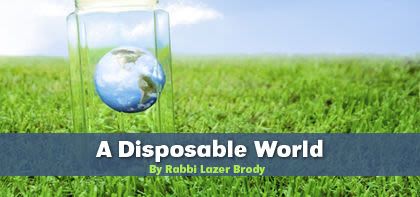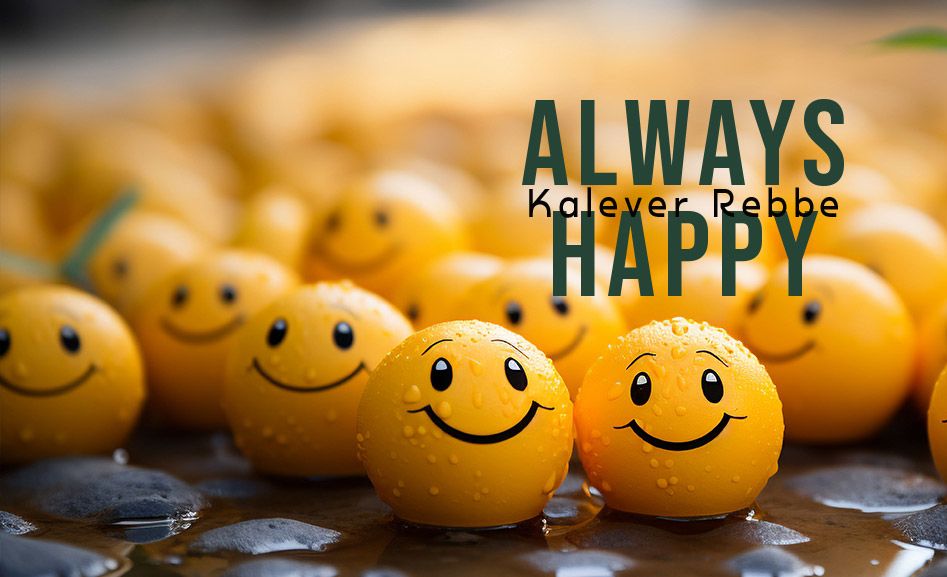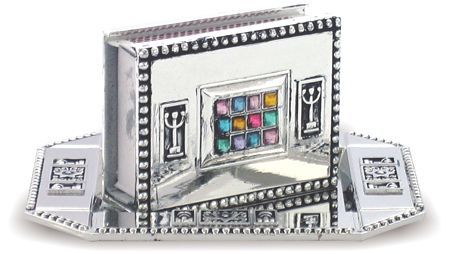
A Disposable World
The more society modernizes and becomes sophisticated, the more it renders things cheap and disposable, for limited use only, then to be discarded…

Because of the demands on my time, I do a bit of multi-tasking. My hour of personal prayer benefits my body as well as my soul, for I speak to Hashem while walking several miles. There are many ways to get good exercise while doing personal prayer without becoming distracted at all. For example, I frequently walk with light leg or wrist weights that strengthen limbs and burn extra calories, or squeeze wrist-and-grip strengthening hard-rubber balls.
When we were little kids, a rubber ball was something that was passed down from an older sibling. It lasted forever. Rubber balls were lost, but they were never destroyed, unless they were run over with a Mack truck…
The other day, I went out for a walk-and-talk with a brand new rubber “guaranteed grip developing” ball, made in China. One of my neighbors, a religious Karate teacher, gave it to me. He carries these things around all the time, and goes through them like a person eating popcorn. Subconsciously, I expected the little ball to last for a long time. But, by the time my personal prayer session was barely halfway through, the ball disintegrated. Luckily, Ashdod is well equipped with adequate trash bins in our many parks and walkways, for that’s exactly where the little disposable ball found its fate.
Car enthusiasts, do you remember the old ’56 Ford with the classic straight V-6 engine that was so simple to maintain? There were plenty of them on the road in the early 1980’s, for any normal driver could get 25 years out of that car. Today’s cars, with all their sophistication, look like absolute jalopies after seven or eight years, if they last that long.
Any honest computer dealer will tell you to praise Hashem if you’re able to squeeze four years of use out of  your new computer; they’re not built to last any longer.
your new computer; they’re not built to last any longer.
Remember the old battle-ax mechanical washing machines? Only Sherman tanks were built stronger. People used to buy a new washing machine once in a lifetime. Nowadays, with the electronic cycles and easily corroded bodies, don’t expect the washing machine to last any longer than five or six years at best.
Yes, that little rubber ball disintegrating in my hand during personal prayer triggered some probing thought; for sure, Hashem was conveying an important lesson…
I felt like Hashem was telling me that the more society modernizes and becomes sophisticated, the more it renders things cheap and disposable, for limited use only, then to be discarded.
Look at marriage today. Many people change their partners like they change their socks. The more that the family unit and the sanctity of the marital unit break down, the more marriage becomes a disposable commodity. People treat each other like throw-away utensils – used once, then discarded. Hollywood and the media glorify cheapness; no wonder people treat each other cheaply.
Notice that the more something is spiritual, the longer it lasts and the greater its value. Why? The spiritual world closely resembles The Creator; like Him, it is eternal. The wisdom of Torah, unlike hi-tech, doesn’t become outdated after a few short years. That’s why we’re so eager to renew our receiving of the Torah every year at Shavuot.
Let’s take a necessary deeper look at ourselves. Each of us has two sides; a disposable side (the body), and an indestructible everlasting side (the soul). The body is here today and gone tomorrow, destined to decompose in the earth (and that’s as gentle as one can describe…). Yet the soul, a priceless tiny part of G-dliness, lasts for posterity.
Isn’t it ridiculous to invest so much in something that’s finite and disposable while neglecting something that lasts forever? Why do we so carefully select our clothes yet exercise so little discretion about what affects our souls? Why do we choose a hairdresser or investment broker with far more care than we’d choose a spiritual guide? Why do we happily sit for two hours watching an inconsequential Major-league baseball game on TV yet begrudge our souls 30 measly minutes of Torah learning a day?
Since we lack spiritual priorities, we make our bodies even more disposable than they already are.
If a person regards his or her body as the housing of the soul, then according to our sages, the body earns a measure of immortality; the more a body becomes subservient to the soul, the less it is subject to the process of decomposing. In this generation, bodies of truly righteous men whose graves were moved, were found completely intact – literally fresh – after years of burial. One such example is the body of the holy Karliner Rebbe, Rebbe Yochanan Perlov of saintly and blessed memory, whose grave was moved from Brooklyn to Tiberias in the 1950’s.
People who don’t treat their bodies as housings of the soul do terrible things to their bodies, such as filling them with junk food, alcohol, and tobacco. Here’s a rule of thumb: any type of indulgence or substance that is detrimental to the body is also detrimental to the soul. How? The Creator created the body to serve the soul. No wonder that such despicable diseases such as AIDS come from bodily indulgence that is devastating to the soul.
Before we do anything in life, we should ask ourselves what we’re doing and why we’re doing it. Part of our daily self-assessment should be evaluating whether we’re investing in the disposable or the eternal side of ourselves. Those who do such daily self-assessment saves themselves limitless anguish – both physical and spiritual – both in this world and in the next.
Torah and emuna are investments for posterity. Let’s increase their percentages in our life’s portfolio. Why make the world – and our own limited go-around on this earth – more disposable than they already are? Have a happy and meaningful Shavuot holiday, and may we all strengthen and renew our connection with Torah, amen!











Tell us what you think!
Thank you for your comment!
It will be published after approval by the Editor.